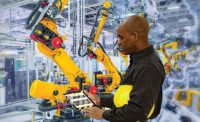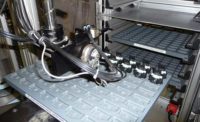Electric vehicles, including plug-in hybrids, accounted for 9 percent of U.S. vehicle sales in 2023. That’s up from 7 percent in 2022, but it’s still not a huge percentage.
Certainly, price has been a limiting factor to greater adoption of EVs, but another is range anxiety. One day, people might drive to and from the grocery store. The next day, they might drive to a neighboring state.
A more ideal application for EVs are vehicles that travel the same route each day and park in the same spot each night—like delivery trucks and school buses.
Lion Electric Co. manufactures all-electric class 5 to class 8 commercial urban trucks and all-electric school buses. Employing some 1,400 people in the U.S. and Canada, the company also makes many of its vehicles’ components, including chassis, battery packs, truck cabins and bus bodies.
Lion’s current line-up of purpose-built all-electric trucks can be divided into four main platforms based on gross vehicle weight rating: the Lion5, Lion6, Lion8 and Lion8 tractor trucks, and the Type C and Type D school buses. All are offered in several range and configuration options.
To date, Lion has delivered more than 1,600 electric vehicles in North America, that have collectively driven more than 19 million miles. At full capacity, the company’s assembly plants in Quebec and Illinois will be able to manufacture 22,500 electric buses and trucks per year.
Through November 2023, the company’s order book consisted of 268 electric trucks and 1,964 electric buses, representing a combined value of approximately $525 million. Lion also has orders for 129 charging stations.
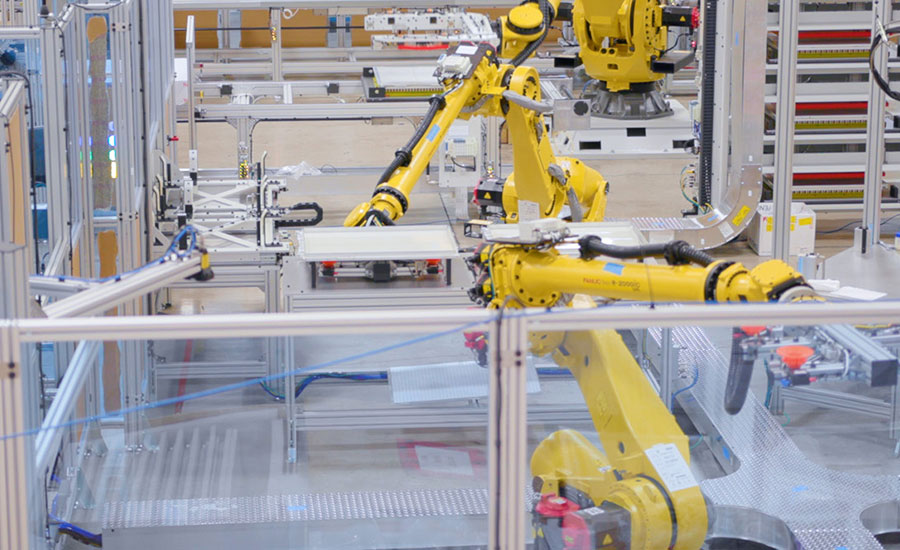
In April 2023, Lion Electric officially opened a new assembly plant in Mirabel, Quebec, Canada, to produce lithium-ion batteries for its vehicles. Photo courtesy JR Automation
In April 2023, Lion Electric officially opened a new assembly plant in Mirabel, Quebec, Canada, to produce lithium-ion batteries for its vehicles. The first of its kind in Canada, the 175,000-square-foot facility will supply batteries for EVs assembled at Lion’s factories in Saint-Jérôme, Quebec, and Joliet, IL.
“I am proud that Lion Electric is increasing its production capacity with a new battery facility in Mirabel…which will create 135 high-paying jobs,” says François Legault, Premier of Québec. “Lion is a great Quebec success story.”
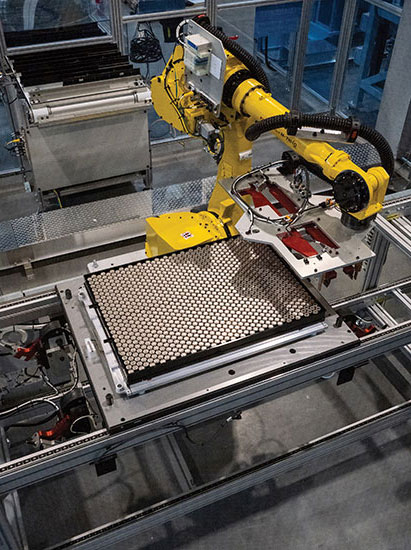
Lion Electric’s battery factory was expected to reach a production capacity of 1.7 gigawatt hours by the end of 2023. Photo courtesy Lion Electric
Following installation of the initial portion of the battery assembly line in Mirabel, production of the first battery pack was completed at the end of 2022. Then, in December 2023, Lion announced the successful final certification for its medium-duty battery pack, the LionBattery MD, a lithium-ion battery pack specifically designed for the company’s medium duty trucks and school buses. Lion, in collaboration with third-party testing partners, conducted stringent testing to fulfill the certification requirements. The pack is now certified to meet the most rigorous criteria and safety regulations in the automotive industry.
The Mirabel facility was expected to reach a production capacity of 1.7 gigawatt hours by the end of 2023. At full scale, it should have an annual production capacity of 5 gigawatt hours. This will enable Lion to produce approximately 14,000 medium- and heavy-duty vehicles per year, depending on the vehicle mix.
Meeting that sort of production volume requires automation. To get the job done, Lion Electric reached out to JR Automation, a systems integrator headquartered in Holland, MI.
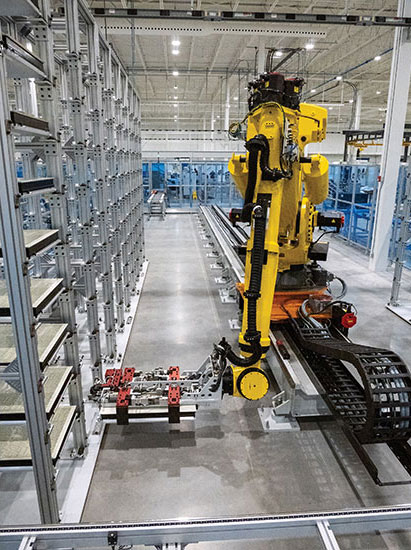
Initially, JR Automation built a fully functioning prototype system, using key automation elements that the final production system would require. Photo courtesy Lion Electric
With an aggressive deadline for implementation, the Lion and JR Automation teams recognized that they would first have to conceptualize the end-to-end system. To do so, JR Automation built a fully functioning prototype system, using key automation elements that the final production system would require. This meant creating a solution capable of hi-pot testing, adhesive application, pressing, laser etching, welding and final testing, all while being flexible enough to be adjusted as the project’s scope evolved.
Once the prototype system was delivering production-quality battery packs, the teams then scaled up the system in a matter of months to deliver a fully automated line. Spanning multiple JR Automation production facilities, the full production system is a prime example of JR Automation’s ability to design complex, large-scale systems.
Not only did the collaboration deliver an automation system quickly and effectively, it also created a strong partnership between the two teams. By engaging JR Automation early in the development process, the Lion Electric team was able to gain key insights on how the product should be designed and produced. Together, the teams were able to craft a system together and avoid costly revisions down the line.
“We chose JR Automation because it’s a highly regarded machine integrator,” says Diego Castro, general manager of the Mirabel battery plant. “Being backed by Hitachi expands the business portfolio and at the same time allows you to be supported in new ideas and new developments.
“It was fantastic working with the team here at JR Automation that is focused, dedicated, proud of their results. They feel part of the project. If you go and ask them, they are celebrating every time that we hit a milestone the same as anybody else. They are completely committed to this project. I find this to be probably the most relevant example of synergy in between two teams where you grab two pieces together, but the whole was 10 times bigger than the two pieces.”
For more information on assembly automation, visit www.jrautomation.com or see the company at The ASSEMBLY Show South May 1-2 in Nashville, TN.
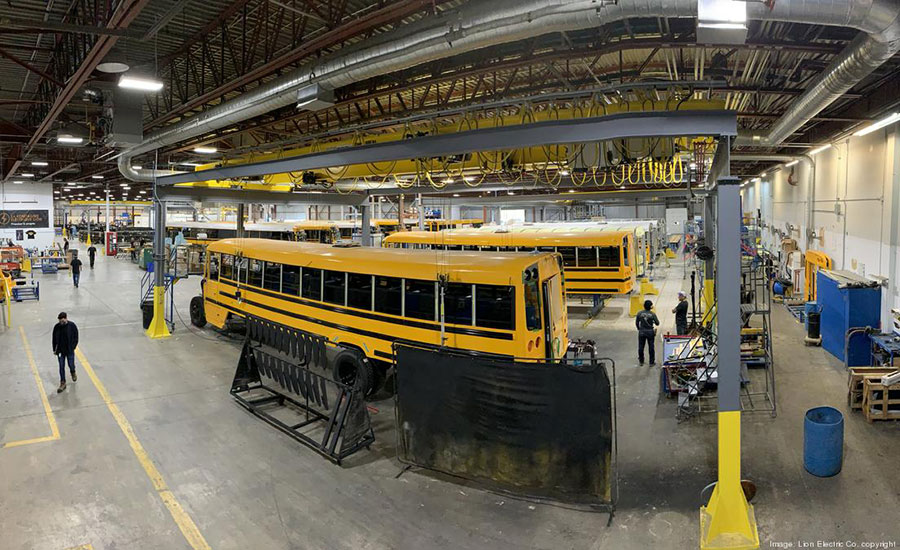
At full capacity, the company’s assembly plants in Quebec and Illinois will be able to manufacture 22,500 electric buses and trucks per year. Photo courtesy Lion Electric
Learn about new products for automated assembly
Automated Brazing and Soldering Machines
RU Series/Servo Indexing
Robot Integration for Rotary Indexing in Automation
Go Smarter. Go Boldly.
Ergonomic Lifting with Demag Freestanding Workstation Cranes


